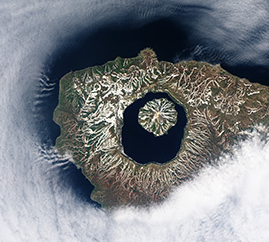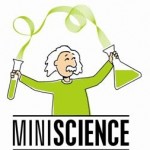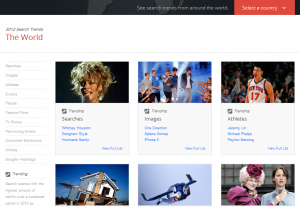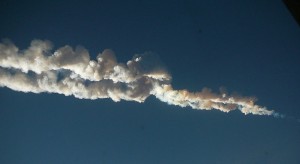At a TED conference this week, MIT researcher Skylar Tibbits showed a new technology called “4-D printing.” Rather than printing out an object, the 4-D printer creates a string that can self-assemble into whatever shape you would like it to be. Read more about this or watch 4-D printing in action:
Monthly Archives: February 2013
eduroam – worldwide roaming access service
The reading break is around the corner. If you plan to visit other educational institutions during that week, you might be able to access their wireless network using your McGill Username and Password. This privilege comes from “eduroam”, a roaming wireless authentication service worldwide. McGill University is a member of eduroam, which enables its students, faculty and staff to access the wireless network at other eduroam participating institutions using the same credentials they use at McGill University. The detail of configuring this service is here. If you need to use McGill Library’s electronic resources when you are there, you will also need VPN or EZproxy after logging onto the network. Below is a short video about eduroam.
Big day in space rocks last Friday!
Chicken Little might have been vindicated, had he been feeling the sky fall last week in Russia! Last Friday, February 15, I was going to blog about asteroid 2012 DA14, that was whizzing by Earth at 1/13 the distance to the moon, but I awoke to find that a spectacular meteor event had stolen the astro-object thunder by breaking up over central Russia – at about 15 meters on entry, arguably the largest recorded meteor since 1908. This Chelyabinsk meteorite event ended up with over 1000 people injured. NASA assures us that the two objects are unrelated, but, holy space rock, Batman, coincidental!
Post meteor, Simon Rogers has a map of every known meteorite fall on Earth over at the Guardian Datablog. After that, you may feel reassured by viewing this list of the measured impact risk of known near-Earth objects maintained by NASA-JPL’s Near-Earth Object Program. But don’t get too comfortable, yesterday at Scientific American Blogs, John Matson asks, “Could Another Chelyabinsk-Scale Meteor Sneak Up on Us?” and finds, “With limited resources, asteroid spotters have naturally focused on the largest asteroids that could cause the most mayhem. But the smaller, more frequent arrivals to our planet are likely to remain unpredictable for the foreseeable future.”
Image: Witness photo by Nikita Plekhanov from Wikimedia Commons
Images seen from space
 Inspired by those heart-shaped earth’s topographic features (see my last week’s blog), I had a deep search online and found more beauties. They are islands, planned cities, and agricultural landscapes seen from space.
Inspired by those heart-shaped earth’s topographic features (see my last week’s blog), I had a deep search online and found more beauties. They are islands, planned cities, and agricultural landscapes seen from space.
If you are interested in viewing more amazing images about the planet that we live on, NASA’s Earth Observatory is worth a visit.
Image from NASA.
Mini-Science 2013: Science, Sex, and Gender
 I’m always impressed by the the events and lectures sponsored by the Faculty of Science at McGill. Registration just opened for the five-week public lecture series, Mini-Science 2013. Some of the university’s top professors will deliver these talks, all of them, in some way, relating to the theme: science, sex, and gender. These lectures (no science background necessary!) will take place every Thursday evening starting on March 14 and wrapping up on April 11, for a total of five lectures all together. Register soon before it sells out!
I’m always impressed by the the events and lectures sponsored by the Faculty of Science at McGill. Registration just opened for the five-week public lecture series, Mini-Science 2013. Some of the university’s top professors will deliver these talks, all of them, in some way, relating to the theme: science, sex, and gender. These lectures (no science background necessary!) will take place every Thursday evening starting on March 14 and wrapping up on April 11, for a total of five lectures all together. Register soon before it sells out!
Image from Faculty of Science website
Publishing your research 101
ACS (American Chemical Society) Publications has created a series of videos to help authors and reviewers with the process of writing, editing, or reviewing articles. Below is the first episode in the series. It stars Chemistry Professor George M. Whitesides from Harvard University, who has published over 1100 articles and has worked on the advisory boards of multiple peer-reviewed journals.
Happy Valentine’s Day
 While you are going to celebrate your Valentine’s day, are you interested in viewing a series of nature created, heart shaped topography: islands, lakes, coral reefs, and vegetation?
While you are going to celebrate your Valentine’s day, are you interested in viewing a series of nature created, heart shaped topography: islands, lakes, coral reefs, and vegetation?
Read more at here.
Image from Microsoft Images.
McGill videos on YouTube and iTunesU
I like posting videos in The Turret, like Minute Physics, TED Talks, and old scientific communication videos (I’m starting to think that I watch a lot of videos), but thus far I have neglected to talk about those created right here at McGill.
For example, in this video from the Soup & Science series Prof. Lehner from Geography poses the question: how much water do you use per day?
Videos from students and researchers are available on McGill’s YouTube channel or iTunesU (this link will launch iTunes).
Happy viewing!
Are video abstracts the latest trend in scientific publishing?
Hundreds of journals allow authors to submit a video abstract, i.e., a short video describing their research, along with their article. Consequently, results of scientific experiments are now appearing on YouTube and attracting a larger audience. Read this informative article by Jacob Berkowitz to find out more.
What was searched on Google in 2012?
 Zeitgeist revealed the most queries that Google received in 2012 worldwide. It lists the most searched celebrities, politicians, athletes, food, beer, jobs, videos, etc. You may also click the “select a country” button to limit your query to a specific country to see the difference. Montreal is the second city that was mostly searched on Google Maps in 2012 (when switching to Canada).
Zeitgeist revealed the most queries that Google received in 2012 worldwide. It lists the most searched celebrities, politicians, athletes, food, beer, jobs, videos, etc. You may also click the “select a country” button to limit your query to a specific country to see the difference. Montreal is the second city that was mostly searched on Google Maps in 2012 (when switching to Canada).

